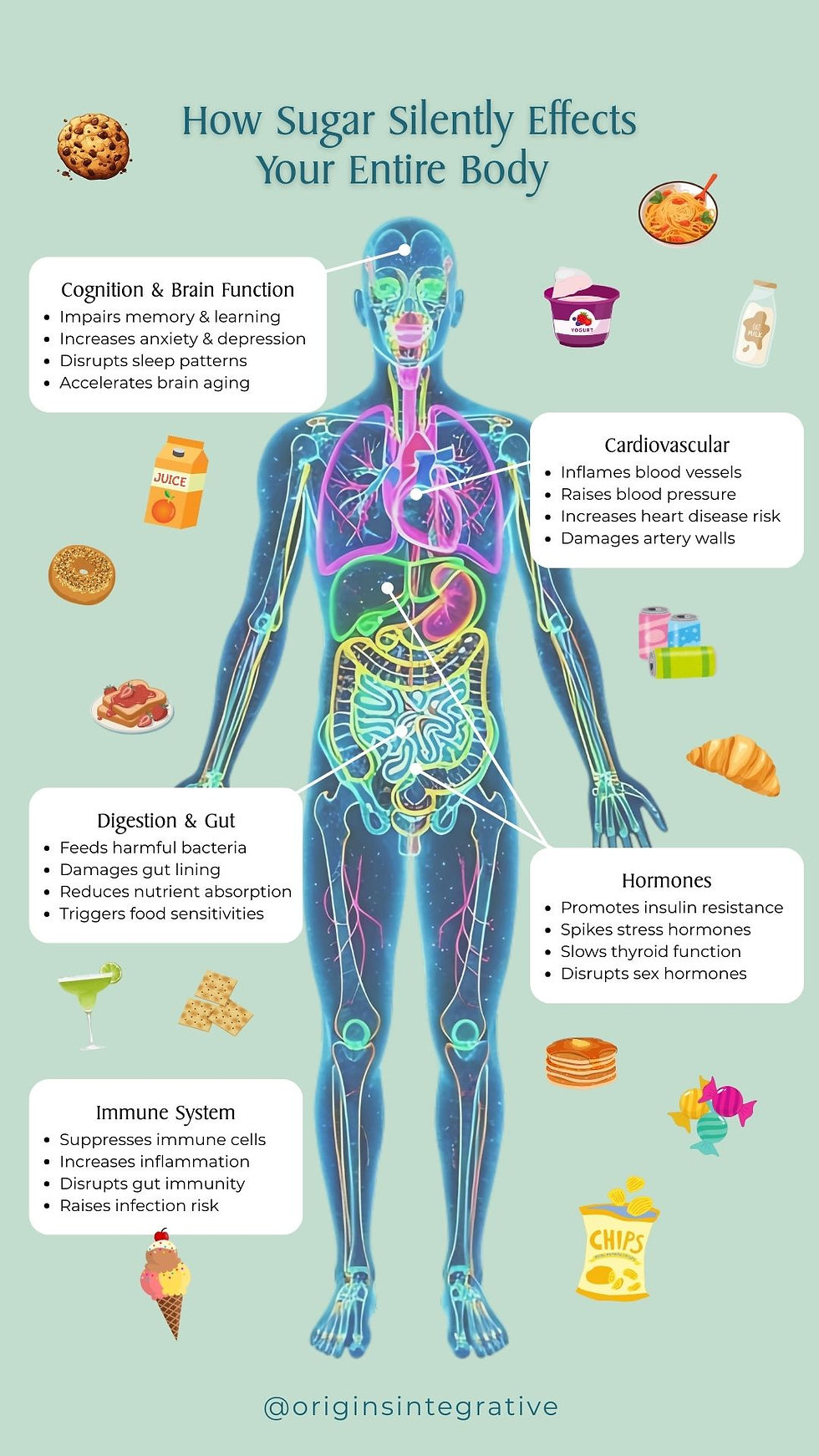Reducing "Forever Chemicals" for Better Health
- Jaime Heer, FNTP

- May 2, 2024
- 2 min read
Let's dive into a topic that's been getting a lot of buzz lately, "forever chemicals", also known as "PFAS" or per- and poly-fluoroalkyl substances. These synthetic compounds are prized for their water and grease-resistant properties. They can be found throughout our environment in various industrial and consumer products (see list below) as well as in our soils and water supply.
PFAS are incredibly resilient, never breaking down in the environment and can even remain in your body for years. 🤯 While their impact on human health continues to be studied, emerging research suggests a concerning link between PFAS exposure and many health conditions including cancer, hormone imbalances, autoimmune conditions and thyroid disorders.
Your health is our number 1 priority which is why we want you to be aware of potential exposures so that you can take action to limit contact while supporting your body's ability to break down and eliminate these chemicals.
Where are PFAS most often found?

Food packaging, fast food wrappers
Personal care products
Cosmetics
Non-stick cookware, Teflon
Cleaning products
Stain resistant fabrics and carpet
Water repellant fabrics & materials
Pesticides
Conventionally grown food
Soil
Water
Practical tips to reduce your exposure to & build up of forever chemicals:
Filter Your Water: Invest in a high-quality water filtration system to remove PFAS contaminants.
Avoid Non-Stick Cookware: Opt for stainless steel, cast iron, or ceramic cookware instead of non-stick options. Ditch the Teflon!
Read Labels: Be mindful of product labels and avoid items that contain PFAS when purchasing personal care products, cosmetics, household cleaners, food packaging, stain-resistant fabrics and waterproof clothing.
Support Detoxification: Incorporate detoxifying foods and supplements into your diet to support your body's natural ability to eliminate accumulated toxins.
Advocate for Change: Advocate for stricter regulations on PFAS use and disposal in your community. Support efforts such as beach clean-ups to address contamination in water sources and the environment.
Be proactive! Small changes in your lifestyle and consumer choices can make a significant difference in safeguarding your well-being for years to come.
Interested in learning more about how we can help you support & clear your detoxification pathways?




Comments